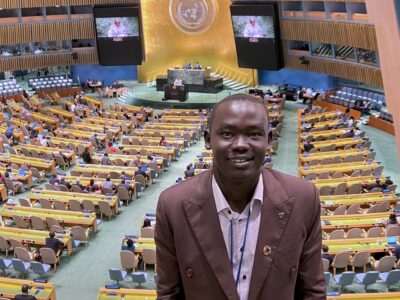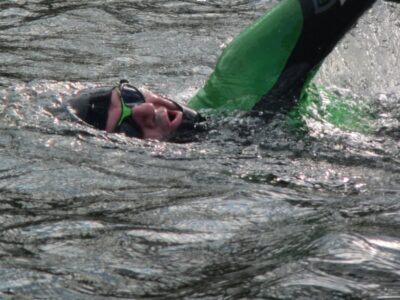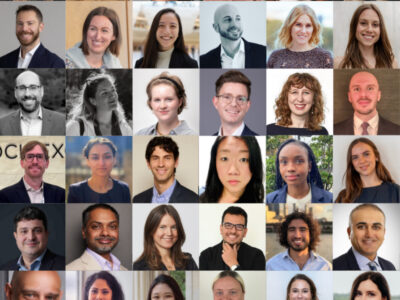“The Climate and Society program is very technical and detailed, while being fast-paced and self-directed,” described Meg Sutton when speaking with undergraduates at a brownbag during the Fall semester. The undergrads that attended this event, which is part of a series hosted by the Undergraduate Program in Sustainable Development, were particularly interested in how Meg was able to combine all of her myriad interests into one masters’ program. Meg explained that she had searched for a program that could give her a strong scientific background, while at the same time providing her with tools to practically apply and communicate this knowledge. Meg’s advice for undergraduates who are in her former shoes? “It is important to be present, interested and passionate in a master’s program.” Meg came to realize that what the M.A. Climate and Society program has to offer was perfect for her.
Meg spoke to students about her professional and personal experiences that lead her to the program. Meg graduated from The University of Vermont with a B.S. in Physics and minors in Mathematics and Spanish. Her undergraduate research mainly focused on optical and solid state physics applications, namely alternative water quality testing and the conductive capabilities of organic semiconductors. However, Meg’s academic focus shifted after college. An avid skier, she had always had a keen interest for the outdoors and she spent some time being a ski instructor out west. This interest, along with several experiences living internationally, drew her towards environmental sustainability topics and the implications of global climate change as she witnessed first-hand the effects of these changes.
This past summer Meg delved more deeply into the climate studies that brought her to Columbia, as an intern working alongside Dr. Lisa Goddard at the International Research Institute for Climate and Society. During her internship, she worked on producing varying types of climate models for seasonal El Niño/La Niña-Southern Oscillationforecasting and models that incorporate the dynamic ensemble models from the Intergovernmental Panel on Climate Change fourth assessment report. This allowed her to work in depth on the topics she found most interesting in the program. Meg encouraged students to take time off to figure out what interests them most so that they make informed decisions about graduate school, and can maximize their experience.
This event was one of six “Brown Bag” talks that was scheduled during the fall semester. These events are open to all undergraduate students and are hosted by the Undergraduate Program in Sustainable Development.
The Program in Sustainable Development allows students to gain the necessary skills they need to address the fundamental issues of sustainability. Whether it be navigating through complex public health situations or using analytical skills to develop solutions to water management problems, the Undergraduate Program in Sustainable Development enables students to look at progress in human well-being without causing harm to our environmental and the planet. The program benefits from the groundbreaking work of the faculty and researchers at the Earth Institute who collaborate with students in addressing fundamental sustainable development issues.
To learn more about the Undergraduate Major and Special Concentration in Sustainable Development, or for more information about, or to register for, our upcoming “Brown Bag” events hosted by the Undergraduate Program, please visit our website or contact Jessica Crespo at jcrespo@ei.columbia.edu.



